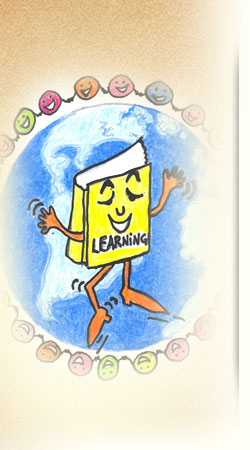My passion for literacy, education, languages and cultures of all regions of the world has fueled my desire to work internationally.

Reading Therapy

“When children become good readers in the early grades, they are more likely to become better learners throughout their school years and beyond”-National Institute for Literacy
Reading success or failure has a tremendous influence on a child's self confidence and motivation to learn. It is imperative that the skills children must learn in order to read well are reflected in the classroom reading program and instructional approaches. The goal of reading therapy is to help prevent the predictable consequences of early reading failure. Identifying children early means that teachers can start using appropriate methods to ensure the learning journey is smoother and enjoyable for all children.
Reading Therapy is not tutoring. Therapy emphasizes the development of underlying reading processes that form the foundation for reading and language. Therapy is based on automaticity and accuracy of the reading processors:
Phonological Processor- process speech sounds to letter sequences and spelling patterns.
Orthographic processor- processes the print. It has nothing to do with sounds and emphasis is on learned associations between letter groups like (sh, ing, tch, eigh).
It is this processor that has to chunk letters together to help us read.
Meaning processor- processes all known word meanings.
A tutoring service involves re-teaching the material from school and helping the students complete their assignments.
We recognize that reading is more than just putting sounds to letters.
Reading is a complex process, involving phonological and language skills. This process may break down at various points for a variety of reasons. Some people experience difficulty with reading and or/understanding the English writing system and as a result learning how to read becomes a painful chore rather than an exciting adventure. Reading therapy provides the key to unlock the door to learning and to make reading, not only an enjoyable part of living but also a pathway to learning in any discipline.
